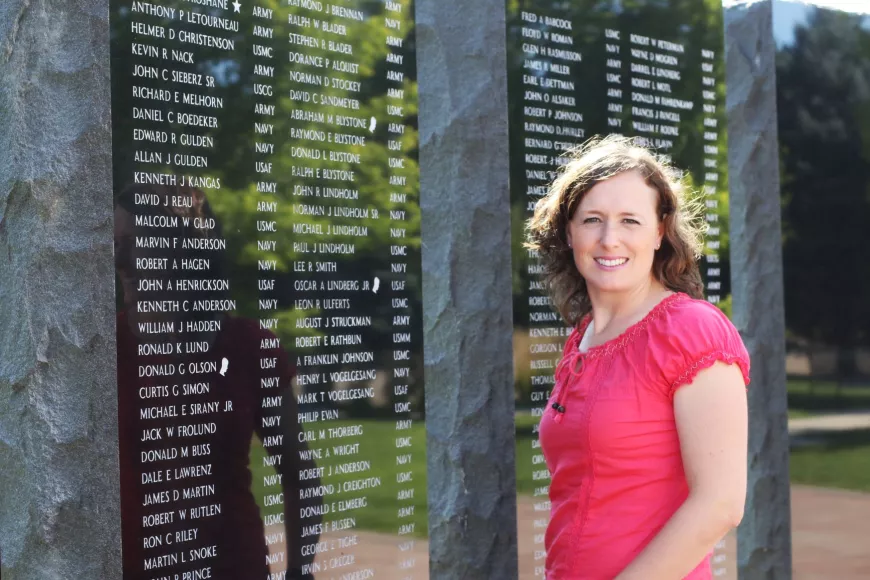Soldiering On: Serving Veterans

"Soldiers are trained to be heroes," explains Jolaina Falkenstein, a licensed therapist with Lutheran Social Service of Minnesota’s (LSS) Behavioral Health team, "but we are very much human underneath."
Military training focuses on agility, strength, strategic thinking, lightning fast decision making and team cohesion, traits of many heroes. In the hard circumstances of war, a soldier cannot afford to be ruled by their softer side without the possibility of jeopardizing the success of a mission or other lives.
As a two-tour Veteran with the Army Reserves and an LSS Behavioral Health therapist, Falkenstein’s military and civilian life intimately intersect in the passion she brings to helping military personnel through deployment, reintegration and healing. At LSS, she works closely with Minnesota Veterans as they navigate challenges they face during deployment and reintegration. Still an active non-commissioned officer in the Reserves after 18 years, she also designs programs for the U.S. Army Yellow Ribbon Reintegration Program (YRRP) for soldiers and their families.
Supporting soldiers to be the best they can be is in the very air she breathes. She understands how it can be for Minnesotan soldiers coming home with their deployment experiences living in them and learning to navigate a civilian world once again. She knows firsthand what it means to serve and return home. She knows how strong and resilient a soldier truly can be.
Falkenstein’s own experiences in the military during wartime changed her life path. Trained in the administrative sector, Falkenstein faced tough leadership responsibilities, including leading a team that sometimes needed to move 1,500 soldiers a day in and out of Afghanistan, Iraq and Kuwait.
After two tours of duty, Falkenstein says she wishes she could have done more to help the soldiers she was commanding and supporting. In the midst of war, Falkenstein wished she had mental health training to help them further strengthen their inner skills to survive the stress of deployment in the healthiest way possible.
That deep desire to help build even more resiliency into a soldier’s DNA, despite whatever they may be facing, led her to become a licensed therapist once she came back home.
"We faced a number of challenges on deployment and coming home. That catapulted me to do what I do now, to attend to the softer, human side of a soldier — so the soldier can continue to do what the soldier needs to do," she says.
At LSS Behavioral Health, Falkenstein continues her service to Veterans and others in need of support.
She is acutely aware that helping Veterans today, means resilience and health for generations to come.
"It is a trickle down effect. How some Veterans seek to deal with the things they struggle with can lead to multiple divorces, addiction, and then those struggles get visited on the next generations. We are not just helping one Veteran — we are setting a ripple effect for how they engage in the world with their work, their friends, and their family," she explains.
Humble and passionate, Falkenstein has passed up the opportunity for military promotion to keep doing what she loves. Falkenstein recently received MN Humanities Center Veterans Voices Award and was publicly recognized by Congressmen Tom Emmers for her contribution and service.
"Working with the military population and educating others is my way of giving back to those who serve," she says. "I cannot imagine doing anything else."
The opinions and information stated in this article are solely the views of Lutheran Social Service of Minnesota and do not reflect the opinions of the Army Reserve.
